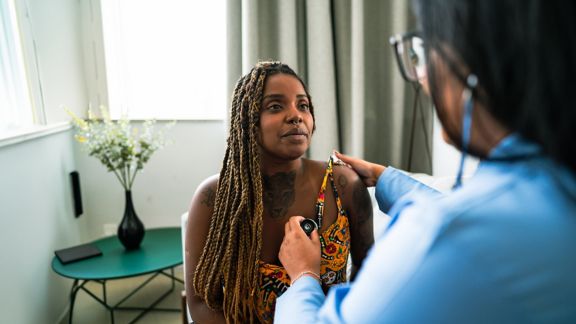Maternal Health Portfolio Evaluation and Capacity Building

Problem
A need to understand how maternal health programs address maternal health issues in the U.S.
Maternal mortality and severe maternal morbidity are important public health issues. In particular, given persistent racial and ethnic disparities in maternal outcomes in the U.S., there is a pressing need for more information on how maternal health strategies and interventions can address these issues.
Solution
An invaluable look at how maternal health programs are working to address maternal mortality and severe maternal morbidity.
The Health Resources and Services Administration (HRSA) Maternal and Child Health Bureau (MCHB) plays an important role in ensuring maternal health in the United States. NORC supports HRSA through our Maternal Health Portfolio Evaluation and Capacity Building Support project. The project collects quantitative and qualitative data on HRSA’s maternal health awardees. The evaluation focuses on five HRSA-funded programs:
- The State Maternal Health Innovation (SMHI) Program
- The Alliance for Innovation on Maternal Health (AIM)
- The Alliance for Innovation on Maternal Health (AIM) – Community Care Initiative (CCI)
- The Rural Maternity and Obstetrics Management Strategies (RMOMS) Program
- The Supporting Maternal Health Innovation (MHI) Program
NORC designed and is currently conducting the portfolio evaluation, which concludes in 2025. We are also providing evaluation technical assistance to the HRSA awardees. The portfolio evaluation is informed by six overarching questions that assess the effectiveness of the HRSA awardees’ activities, barriers and facilitators to implementation, opportunities for scaling and spreading effective program interventions, the degree to which programs address the elements of prevention, and the overall impact of the portfolio on maternal health outcomes.
Result
Findings that will inform how maternal health programs can improve maternal health in the U.S.
The evaluation will identify strategies and activities that can ensure maternal health in the U.S.
Related Tags
Project Leads
-
Roy Ahn
Vice PresidentProject Director & Main Contact -
Britta Anderson
Principal Research ScientistSenior Staff -
Meghan Woo
Principal Research ScientistSenior Staff









